Best fictional characters from Sherlock Holmes to Jane Eyre as chosen by 100 literary figures
Leading figures of British literature name the characters who give them the most reading pleasure - is your favourite among them?
Your support helps us to tell the story
From reproductive rights to climate change to Big Tech, The Independent is on the ground when the story is developing. Whether it's investigating the financials of Elon Musk's pro-Trump PAC or producing our latest documentary, 'The A Word', which shines a light on the American women fighting for reproductive rights, we know how important it is to parse out the facts from the messaging.
At such a critical moment in US history, we need reporters on the ground. Your donation allows us to keep sending journalists to speak to both sides of the story.
The Independent is trusted by Americans across the entire political spectrum. And unlike many other quality news outlets, we choose not to lock Americans out of our reporting and analysis with paywalls. We believe quality journalism should be available to everyone, paid for by those who can afford it.
Your support makes all the difference.Everyone who enjoys reading, and even those who do not, have a favourite literary character.
From childhood staples such as William Brown and Paddington Bear to classic heroes and heroines like Charlotte Bronte's Jane Eyre and Jane Austen's Elizabeth Bennet, these figures have resided in our imagination for years and in some cases centuries.
One hundred people connected with literature, including writers, directors and publishers, were asked to nominate their favourite fictional creation.
Some choices were more surprising than others - author Pauline McLynn chose evil killing machine Hannibel Lecter and said he could eat her kidneys "as long as he fed me an excellent bottle of red wine beforehand". Each to their own.
Bathsheba Everdene
Chosen by Di Speirs (executive producer of readings at the BBC)
Vital, passionate, spirited - from the moment Bathsheba appears in Far From the Madding Crowd, she is beguiling. You can denounce her faults - she's selfish and capricious - but it's hard not to admire her determined independence.
The Cat in the Hat
Chosen by Peter Florence (the director of the Hay Festival)
Morgan le Fay is my dream girl, Odysseus my hero guy, but the character I've really loved is Dr Seuss's The Cat in The Hat: a total anarchist getting away with it. Torturing the sanctimonious fish appealed, too.
Anne of Green Gables
Chosen by Lennie Goodings (publisher of Virago)
The feisty, funny and above all unabashedly passionate Anne of Green Gables, by LM Montgomery. She is a red-haired, freckle-faced orphan who faces the world with absolutely nothing but the sheer force of her personality. I love her.
George
Chosen by Jenni Murray (the presenter of Woman's Hour)
Enid Blyton's Famous Fiver was the only character who seemed to feel the way I did about adventure, being "one of the lads" and the dullness of domestic duties.
William Brown
Chosen by Barbara Trapido (The Travelling Horn Player)
William is a child rebel in stifling suburbia. His instincts are against social climbing, pseudo-intellectualism and the humdrum. He has a flair for befriending eccentric outcasts, while cutting a swathe through village fêtes.
Mrs Norris
Chosen by Sally Beauman (The Landscape of Love)
Mrs Norris in the glittering satire Mansfield Park, is Austen's most profound, subtle portrait of the banality of evil.
Emma
Chosen by Diana Wynne Jones (Conrad's Fate)
Jane Austen's Emma is so very human. She is always plunging into such embarrassing mistakes - and yet they're the mistakes one longs to make oneself, like telling the tediously garrulous Miss Bates to shut up. And, bless her, she is truly ashamed when she does, because she is actually very nice. Nicer than I am by a long way.
Rhett Butler
Chosen by Penny Vincenzi (Sheer Abandon)
It's been a lifelong love affair between me and Gone With The Wind's Rhett Butler. He seems to encapsulate every desirable male quality - sophistication, wit, courage and tenderness, too.
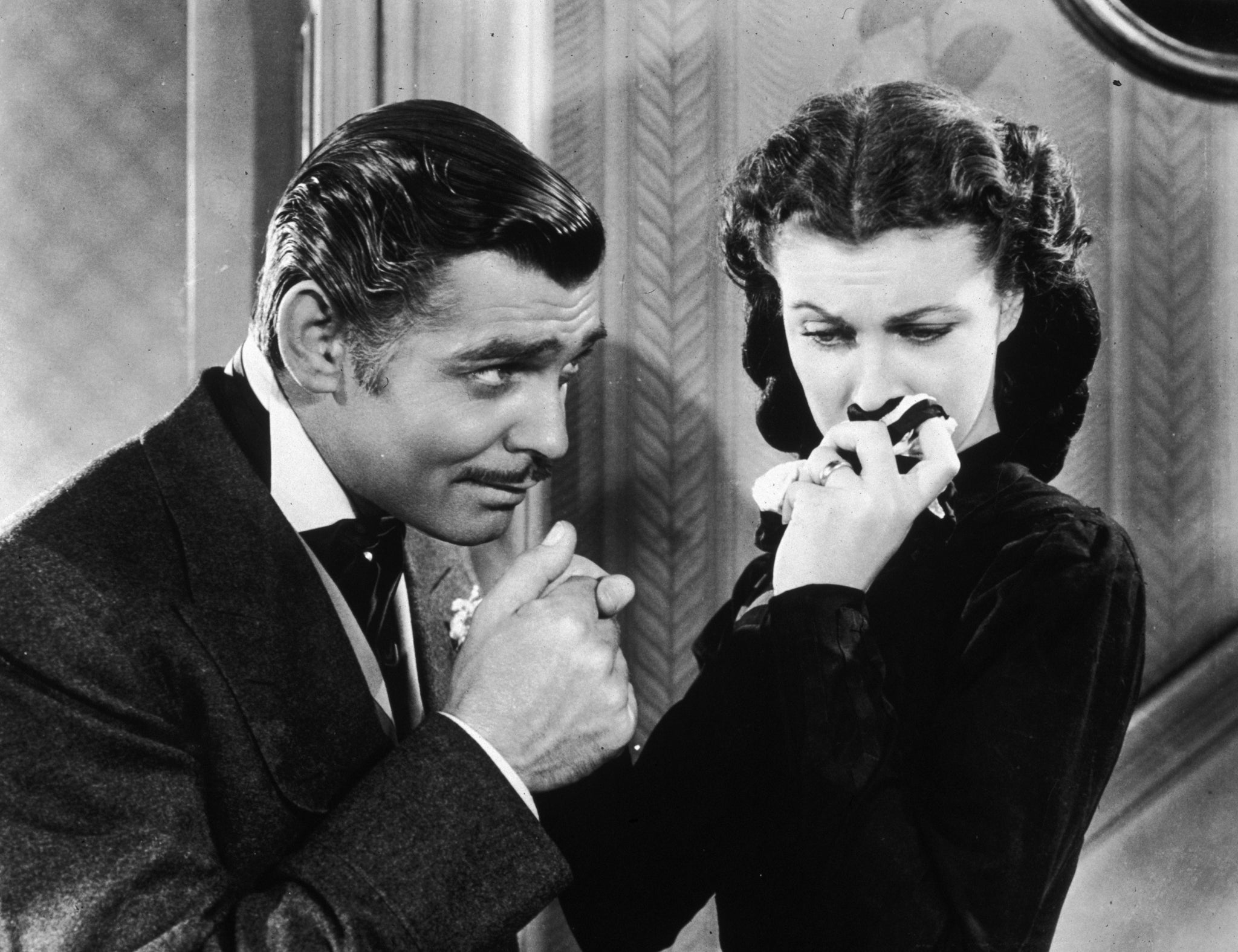
God
Chosen by Michael Marshall (The Lonely Dead)
Polymorphic, unpredictable, unaccountable; omnipotent yet negligent, kind yet vicious. Suitable to any genre or period. Able to hold centre stage in plot, or work subtly in deep background. Never requires a deus ex machina. A character you can immerse yourself in, forever.
Ebenezer le Page
Chosen by Lisa Jewell (Thirtynothing)
Ebeneezer, the grizzled old Guernsey narrator of GB Edwards's The Book of Ebenezer le Page, who talks us through 70 years of comings and goings on the tiny island he never leaves in salty, stream-of-consciousness patois.
Becky Sharp
Chosen by Maggie Gee (novelist and chairwoman of the Royal Society of Literature)
Witty, sexy, sandy-haired Becky Sharp, whose impoverished background explains her hunger for rich men and high position. She is a rebel from the very first chapter of Thackeray's Vanity Fair. Her one final act of kindness derives from her constant virtue: seeing things as they are.
Flashman
Chosen by Terry Pratchett (the Discworld series)
Harry Flashman, that fictional reprobate - wenching and dodging his way through the major military engagements of the 19th century - is funnier, more honest and certainly less harmful than many of the real brave fools whose paths he double-crosses. You just can't help liking the amiable cad.
Joe Gargery
Chosen by Maeve Binchy (Nights of Rain and Stars)
Joe Gargery in Charles Dickens's Great Expectations is so decent and so real that you always think you know him. Eager and ambitious for the poisonous Pip, Joe is humble and self-effacing. He makes me cry.
Anna Howe
Chosen by Matt Thorne (Cherry)
Even though Anna Howe (Clarissa's confidante in Samuel Richardson's great novel) doesn't always give the best advice, she takes an extraordinary interest in her friend's romantic life. I would love to have a friend who wrote such interesting letters.
Philip Marlowe
Chosen by Michael Connelly (The Narrows)
Philip Marlowe, the private detective created by Raymond Chandler, is the most inspirational and influential character I have ever met. He chimed with all my fantasies of heroism and toughness and loneliness.
Sir Lancelot
Chosen by Wendy Holden (The Wives of Bath)
My favourite character - and the sexiest man in literature - is Sir Lancelot in Tennyson's "The Lady of Shalott". He is drawn with hilariously euphemistic zest - all that stuff about his silver bugle and blazened baldric, and his helmet with its plume. It's barely decent, frankly, and it puts a smile on my face every time I read it.
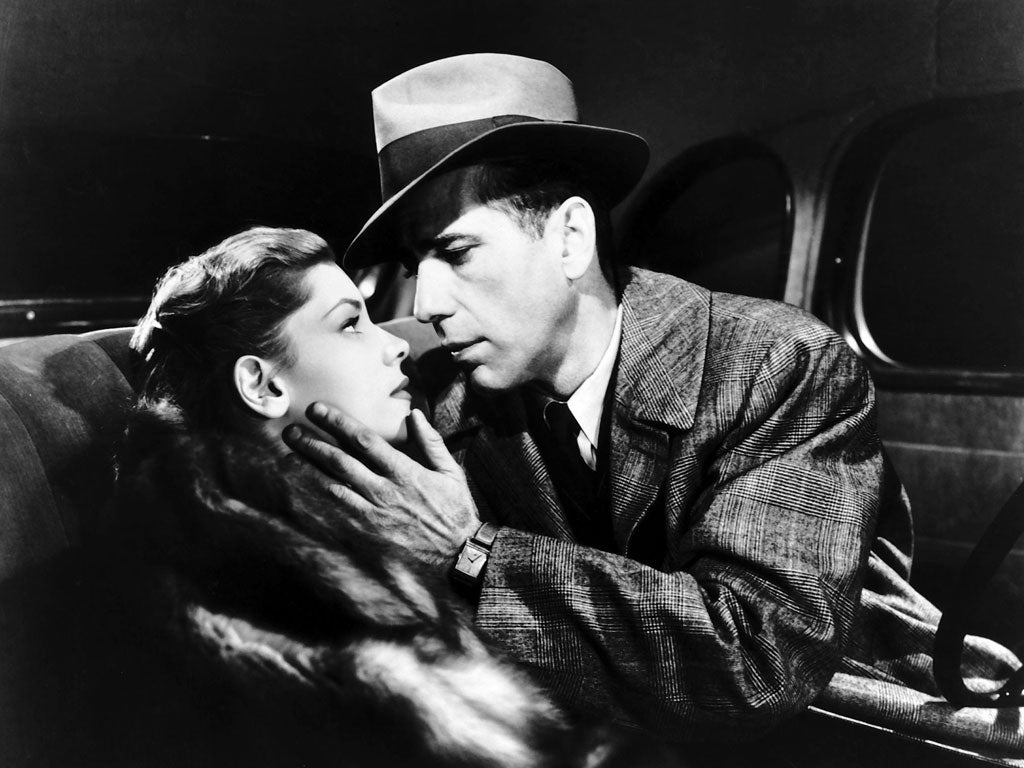
Rupert Campbell-Black
Chosen by Tilly Bagshawe (Adored)
I spent most of my teens wishing Rupert (from Jilly Cooper's Riders) would stride into my parents' kitchen in dirty hunting boots and whisk me away. He's sexy, but with a little-boy vulnerability that makes you forgive him anything.
Josef K
Chosen by James Hawes (Speak for England)
In The Trial, Kafka's master-trap is to make us accept that Josef K's point of view is objective, narrative fact. In fact, Josef K is no timeless Everyman but a specific satirical character: a thoroughly modern salaryman with a goal-oriented, easy-to-clean mental world who is obsessed with office power-plays and visits a prostitute once a week.
Rupert Psmith
Chosen by Philip Downer (managing director of Borders UK)
Psmith demonstrates a degree of youthful flexibility that PG Wodehouse's Jeeves/ Wooster and Blandings characters couldn't quite muster, creating the most demanding and dangerous situations, simply for the pleasure he derives from extricating himself (and his stolid friend Mike) from them. Essentially, you want to be Psmith: he doesn't care what he says; he gets the money; and he gets the girl.
Dick Diver
Chosen by Geoff Dyer (Yoga for People Who Can't be Bothered)
In spite of all the distracting temptations offered to Dick Diver in F Scott Fitzgerald's Tender is the Night - happiness, success, wealth, glamour, the admiration of others - he realizes that he will only come into his own by becoming a charmless bore, an alcoholic, a lonely failure. What willpower!
The Elephant's Child
Chosen by Michael Morpurgo (Private Peaceful)
The Just So Stories by Rudyard Kipling taught me to love the music in words. But what made me want to listen to the music was the feisty Elephant's Child, who, with his newly acquired trunk, has such sweet revenge on all his chastising relatives.
Kari Buhl
Chosen by Colin Wilson (The Outsider)
The character I most admire is the hero of Hugo van Hofmannsthal's social comedy The Difficult Man. Kari Buhl is an aristocrat who embodies his creator's ideal of decency, modesty, intelligence, and immense sensitivity to the feelings of others.
Dr Watson
Chosen by Judith Kerr (The Tiger Who Came to Tea)
There is something appealing about a man who stows his stethoscope under his top hat. Modest to a degree, Watson does not bother us with facts about himself, since Sherlock Holmes is so much more important. His only irritating habit is the way he refers to some of Holmes's cases without telling us the full story.
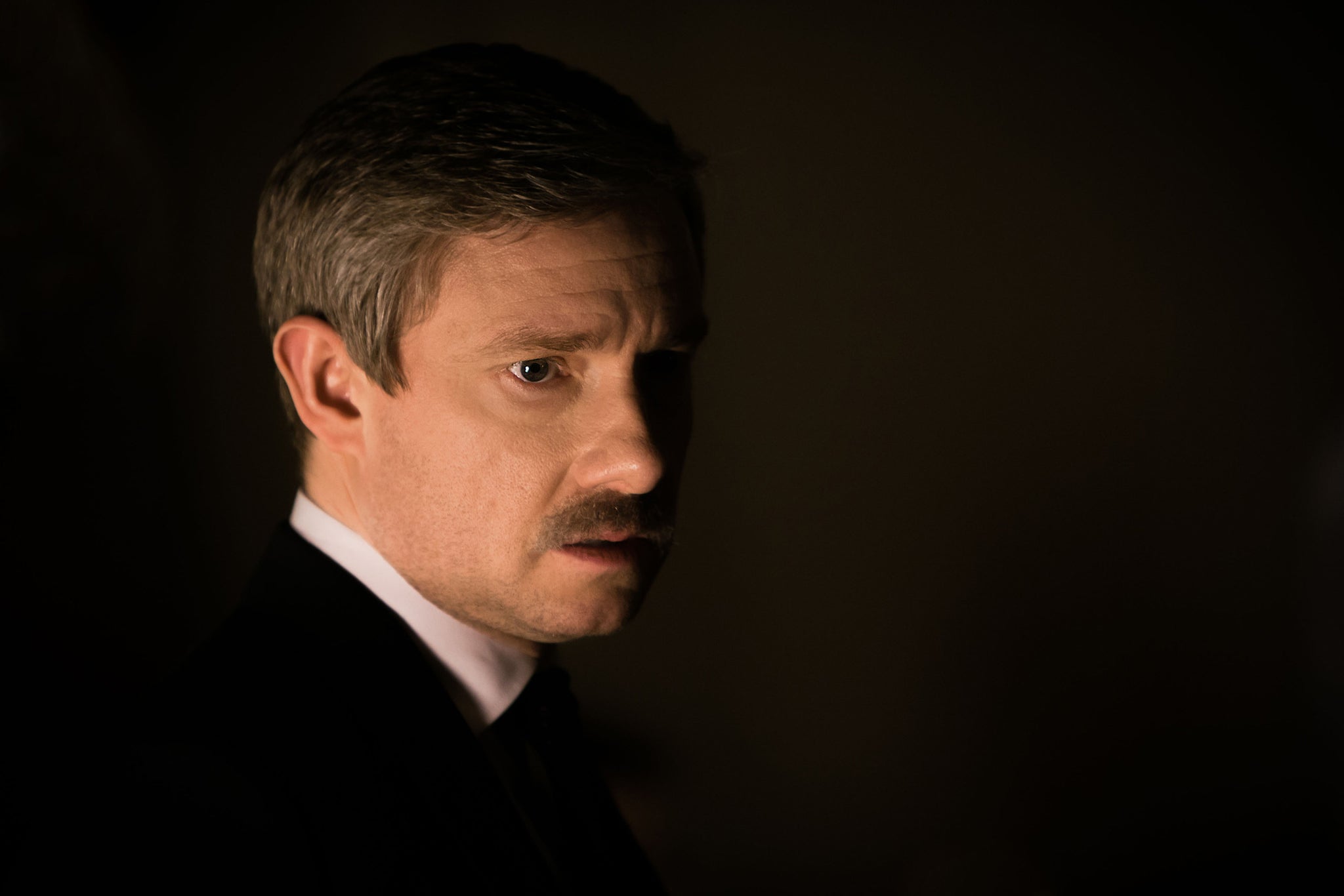
Nigel Molesworth
Chosen by Joanne Harris (Chocolat)
The literary hero who has remained most dear to me is Geoffrey Willans's schoolboy, Nigel Molesworth - a fearless critic, a comedian, a subversive, a philosopher who discusses Camus on the football pitch and whose trenchant powers of social commentary are, as any fule kno, enhanced by his appalling spelling.
Mrs Chippy
Chosen by Lynne Truss (Eats, Shoots & Leaves)
Mrs Chippy, from Mrs Chippy's Last Expedition by Caroline Alexander, is a character based on the real-life cat that went on theEndurance with Shackleton. The narrator of the book, she's engaging and - typically for a cat - regards herself as an important member of the expedition.She was the only casualty of the expedition and the book ends when they are about to shoot her because they couldn't take her across the ice.
Harriet M Welsch
Chosen by Tracy Chevalier (Girl with a Pearl Earring)
Harriet M Welsch, in Harriet the Spy by Louise Fitzhugh, is a precocious 11-year-old New Yorker who is obsessed with spying. Her friends ostracise her for writing brutally honest things about them. Harriet is curious, truthful, and a loner - all qualities a writer needs.
Toad
Chosen by Julia Donaldson (The Gruffalo)
My favourite literary character is a toad, the comically cantankerous half of Arnold Lobel's amphibian duo, Frog and Toad. I love him because he embodies so many human foibles, such as laziness, fear, and attachment to routine.
Daniel Deronda
Chosen by Maggie O'Farrell (The Distance Between Us)
In a literary family tree, George Eliot's Daniel Deronda would be a cousin of another of my favourite characters, Hamlet. They are both intelligent, brooding, fatherless young men at odds with the world.
Billy Bunter
Chosen by Ian McMillan (poet and presenter)
Frank Richards' Billy is a fat chap in glasses having adventures and being idiosyncratic. I love his optimism, waiting for the postal order that never comes; and his sticking a fat finger up at Mr Quelch. Bunter: the King!
Moll Flanders
Chosen by Carole Welch (publisher at Sceptre)
For her zest, and the wit and courage with which she overcomes the hand life deals her, using fair means or foul - usually foul. It's remarkable that Daniel Defoe's heroine first made her appearance in 1722.
Hannibal Lecter
Chosen by Pauline McLynn (comedian and author)
Thomas Harris's Hannibal Lecter has exquisite taste, is well read, surrounds himself with utter beauty and is the meanest killing machine on the face of the literary earth. I wouldn't mind him eating my kidneys as long as he fed me an excellent bottle of red wine beforehand.
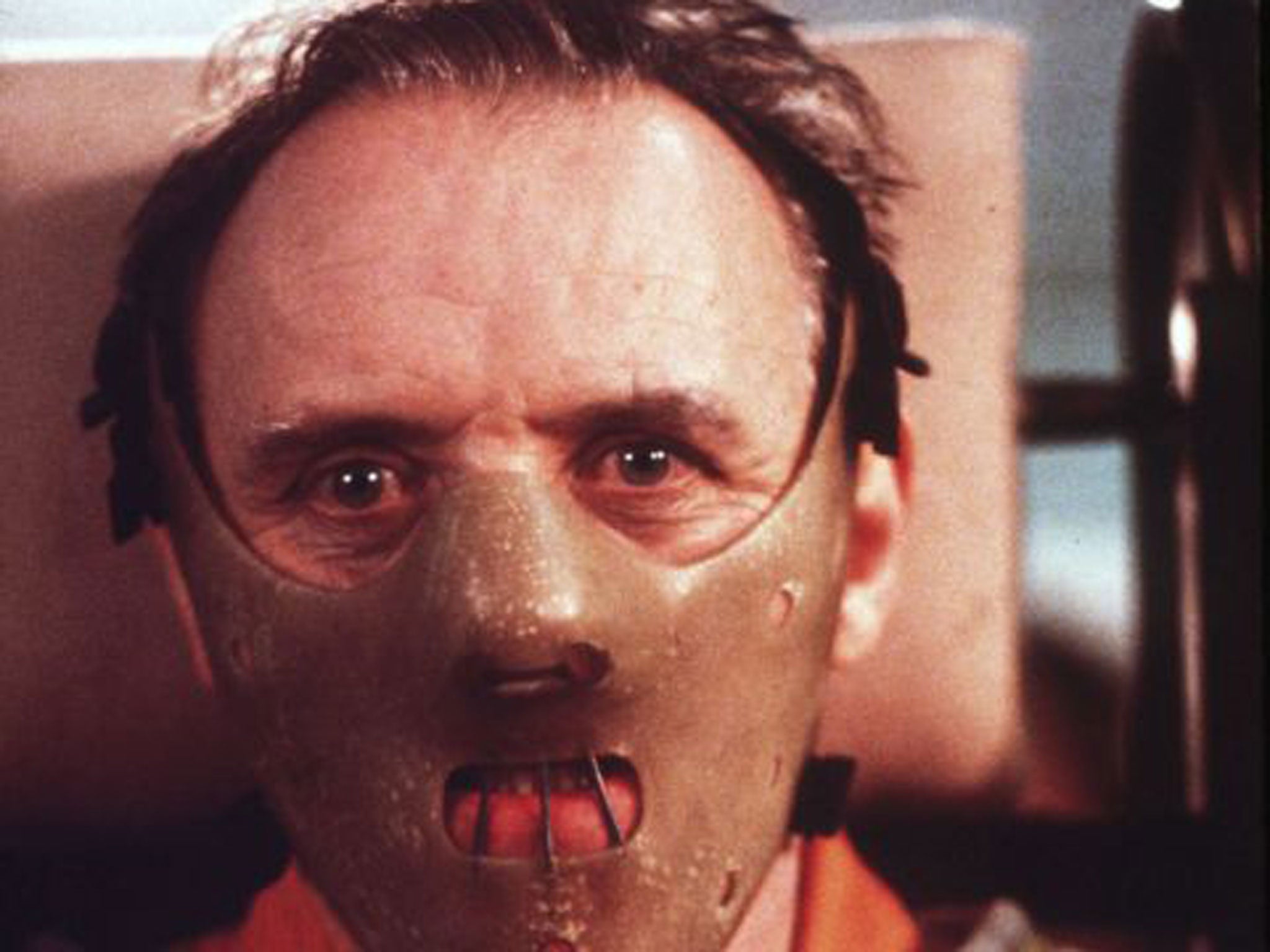
Oskar Schell
Chosen by Louisa Young (co-author with her daughter of Lionboy).
Today's favourite literary character is Oskar Schell, aged 10, hero ofExtremely Loud and Incredibly Close, by Jonathan Safran Foer.
Tolstoy's judge
Chosen by Dan Jacobson (All for Love)
My favourite fictional character is a judge who appears on just a few pages of Leo Tolstoy's Resurrection. Awaiting him in the dock is the desperate Katya, a prostitute, whom he is about to send to her death by forced labour. He has other things on his mind, however. Will he learn from his doctor, later that day, that he has cancer?
Julien Sorel
Chosen by the anonymous author of Belle de Jour
Julien Sorel in Stendhal's The Red and the Black is clever, dashing, successful and completely amoral. But he's also a romantic. This proves to be his downfall, and anyone who believes the rubbish about which respective planets men and women are from has only to read his final thoughts to be disabused of that notion.
Antonia Shimerdas
Chosen by Elizabeth Noble (The Tenko Club)
Antonia Shimerdas, the eponymous heroine of Willa Cather's My Antonia, isn't coquettish or witty like some other heroines I admire. It is her stoicism and determination that make me love her.
Humbert Humbert
Chosen by Andrew Miller (Oxygen)
There's no funnier monster in modern literature than poor, doomed Humbert Humbert in Vladimir Nabokov's Lolita. Going to hell in his company would always be worth the ride.
Muskrat
Chosen by Michelle Paver (Wolf Brother)
My favourite? The Muskrat from the Moomin books by Tove Jansson for his severity and his soaring ambition to be an ascetic, which is so often thwarted by real life. Funny, endearing and true.
Tom Ripley
Chosen by Sarah Waters (Fingersmith)
Patricia Highsmith's The Talented Mr Ripley is a wonderful literary creation. I don't think I'd get much sleep if I spent the night at his house. Highsmith manages to make him so sympathetic, even while she's coolly detailing the eerie processes that lead him into murder. And he gets away with it.
Lyra
Chosen by Gill Coleridge (literary agent)
Lyra Silvertongue from Philip Pullman's superb His Dark Materials trilogy is feisty, determined, brave and never compromises - a remarkable and endearing person.
Patrick Bateman
Chosen by Rob Grant (Red Dwarf)
The monstrous creation of Bret Easton Ellis's dark, dark satire American Psycho is - uniquely among fictional serial killers - a physical coward. He's reduced to pleading wretchedness by a taxi driver who mugs him. His true wickedness lies more in his opinions than in his deeds.
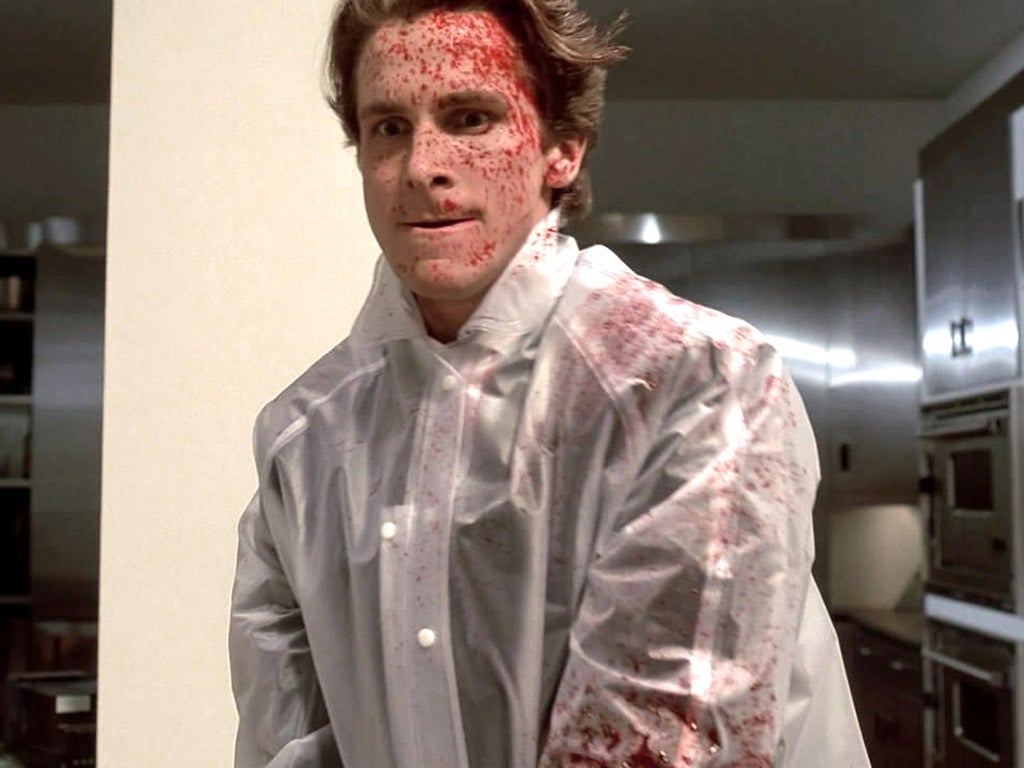
Joachim Ziemssen
Chosen by Philip Hensher (Kitchen Venom)
Joachim Ziemssen in Thomas Mann's The Magic Mountain is a soldier who never boasts, who wants to be heroic in battle and has to be heroic in the sickroom. He's not witty or charming, just honest and virtuous.
Hans Castorp
Chosen by Dr Chris Fletcher, (curator of literary manuscripts at the British Library)
Hans Castorp, the central character in The Magic Mountain, is introduced as "a perfectly ordinary, if engaging young man". By the end of the novel, he has, through "adventures in the flesh and spirit", fallen in love with life. He remains ordinary, but we still cry for him.
Oskar Matzerath
Chosen by DBC Pierre (Vernon God Little)
"Granted: I am an inmate of a mental hospital." This great first line of Günther Grass's The Tin Drum introduces my favourite character, Oskar Matzerath - a child, seemingly conscious from birth, who decides he doesn't want to deal with the adult world. Is that not a perfectly sensible response to urban family life?
Madame Bovary
Chosen by Francine Stock (the presenter of Front Row)
I first read Madame Bovary at 18 and loathed her. I have since come to admire Flaubert's masterwork of romantic delusion - and to recognise her faults as mine.
John Self
Chosen by Rachel Cugnoni, (publishing director of Vintage)
I remember reading Martin Amis's Money when I was about 18 and loving the thrillingly savage character of John Self. He was the ultimate bad boy when my real life was filled with good boys.
Mike
Chosen by Richard Beswick, (publishing director of Little, Brown/Abacus)
"The Day we Got Drunk on Cake" is a beautiful, poignant story by William Trevor. It follows the course of a rackety afternoon in Soho in which a young man, Mike, goes on a pub crawl with a boring lush, gets increasingly drunk and makes nuisance calls to a girl he's in love with. Every time I read it I ache with nostalgia.
Horatius
Chosen by Jilly Cooper (Riders)
Macaulay's Horatius, the saviour of Rome, fought off a vast invading Tuscan army, until his companions behind him had hacked down the bridge to the city. His retreat cut off, heplunged into the River Tiber. As he swam to safety, even the Tuscans cheered.
George Bowling
Chosen by Neill Denny (editor-in-chief of The Bookseller)
George Bowling, the fat insurance salesman who narrates George Orwell's Coming Up For Air, is cynical, funny, prejudiced, angry and honest. Unlike most literary characters, you could imagine sharing a pint with him.
Godwin Peak
Chosen by DJ Taylor (Orwell: The Life)
Godwin Peak in George Gissing's Born in Exile is a humbly-born scientist and ferocious free-thinker. Avid to marry a "lady", he falls in love with the well-bred Sidwell Warricombe. To assist his case, he pretends to be a clergyman.
Moby Dick
Chosen by Robert Crais (The Forgotten Man)
The great white whale himself. With no dialogue and damned little screen time, his presence powers a cast of unforgettable characters across a canvas as deep and wide as the sea, and has kept their quest alive in our dreams across the generations
Anne Elliot
Chosen by Toby Litt (Corpsing)
Anne Elliot is the heroine of Jane Austen's last completed novel,Persuasion. She is wise, gentle, patient and oppressed by circumstance. Earlier in life, she was persuaded not to make an unwise match with a young sailor. When the book begins, she has had almost 10 years to regret her decision, yet she is not bitter.
Haroun
Chosen by Catherine Lockerbie, (director of the Edinburgh International Book Festival)
There are few such fabulous (in the true sense) sons in fiction as Haroun in Salman Rushdie's anti-censorship fairy story, Haroun and The Sea of Stories. Haroun has everything: a silenced storytelling father to save, encounters with water genies and talking hoopoes, and a heroic role in one of the most luminous and resonant tales yet written in praise of freedom of the imagination.
Elinor Dashwood
Chosen by Sarah Smyth (the director of the Cheltenham Literature Festival)
Elinor, in Jane Austen's Sense and Sensibility, is one of those people who have a kind of undemonstrative integrity that leads them instinctively always to do the right thing. She's considerate without being patronising, witty without being sarcastic, and intelligent but not supercilious.
Tom Jones
Chosen by Philippa Gregory (The Other Boleyn Girl)
In Henry Fielding's novel, Tom is a foundling, discovered on a doorstep, falls in love with the beautiful Sophia and is robustly unfaithful only after much temptation. He turns out to be well-born, and marries the girl.
Fermin
Chosen by Scott Pack (buying manager at Waterstone's)
The most memorable fictional characters are the walk-on parts. My favourite is Fermin, the silver-tongued tramp with the dark past from Carlos Ruiz Zafon's The Shadow Of The Wind. A true gentleman.
Molly Bloom
Chosen by Edward Rutherfurd (Russka)
Molly Bloom, Leopold's wife in James Joyce's Ulysses. What is wonderful is the way she describes her life, her affair and her love for her husband in terms of all five senses.
Zazie
Chosen by Dan Rhodes (Don't Tell Me the Truth About Love)
Zazie, the foul-mouthed pubescent star of Raymond Queneau's breakneck Parisian romp Zazie in the Metro, doesn't just leap off the page, she also kicks you in the shins and loudly accuses you of a sex offence.
Michael Henchard
Chosen by John Walsh (The Falling Angels)
Michael Henchard in The Mayor of Casterbridge by Thomas Hardy. It's the most tragic tale of a man who did a great wrong (he sells his wife and daughter) and pays for it later. The way Henchard arranges his life just so, only to see it wrecked and ruined by Fate - it makes me howl with pathos.
Pip
Chosen by Tim Lott (White City Blue)
Philip Pirrip (Pip), of Great Expectations, gripped me at the earliest age. Like him, I had hopes of escaping the loving, but limited, quotidian world that surrounded me. And, like Pip, I learnt to be ashamed of those good people that I loved and then bitterly ashamed of that shame.
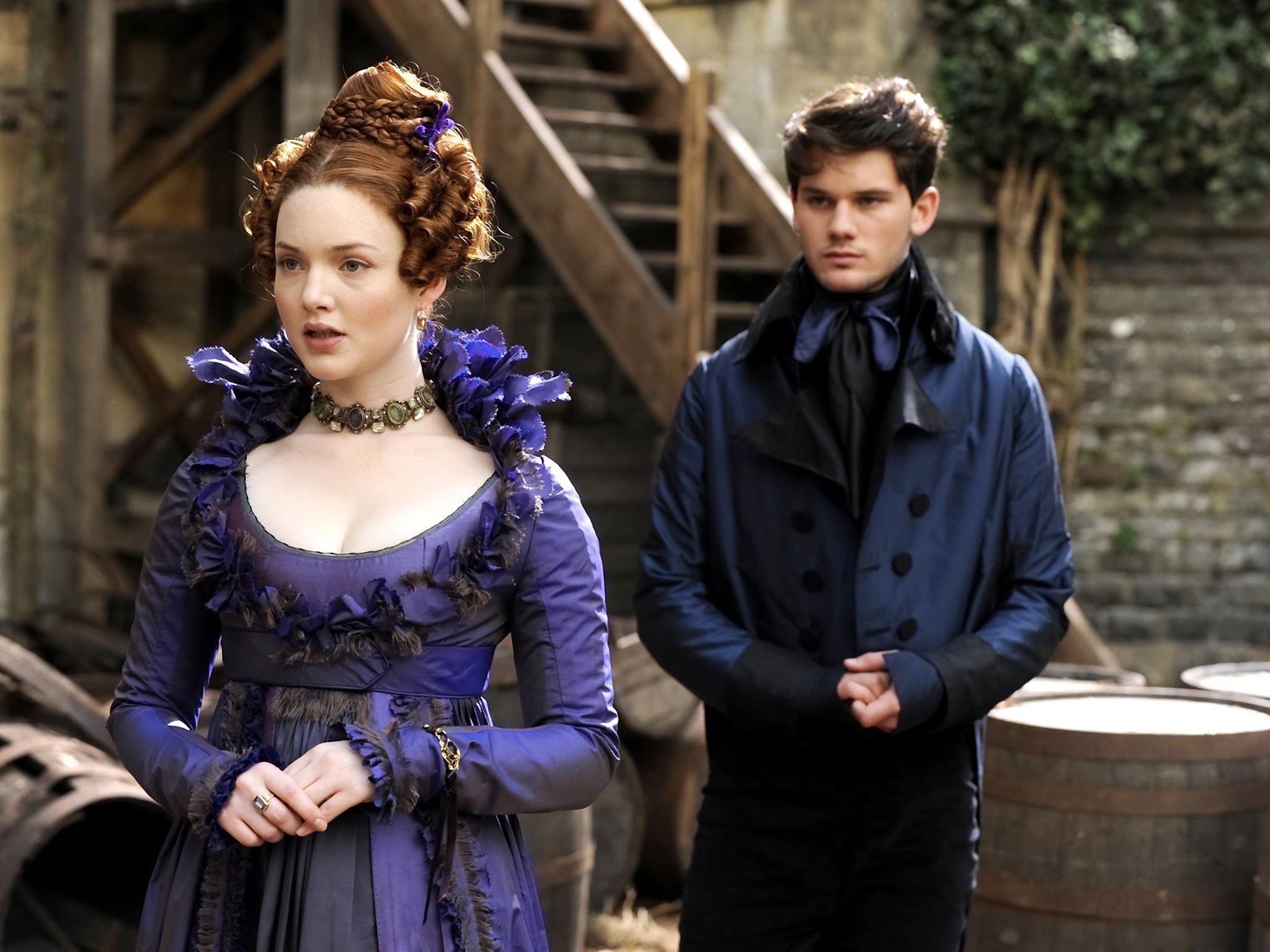
Pechorin
Chosen by Hari Kunzru (Noise)
When I was a teenager I had a thing for Pechorin, the central character of Lermontov's A Hero of Our Time. He is still my "favourite" though I haven't thought about him for a long time. He's probably first-equal with Max from Where the Wild Things Are, and the Cat in the Hat.
Flora Poste
Chosen by Lesley Pearse (Secrets)
Every character in Stella Gibbons's Cold Comfort Farm is a delight, but I identify most with bossy, nosy Flora. I love her need for order. She's never a bully, just a person who is utterly convinced that her way is best.
Alexander Portnoy
Chosen by Jonny Geller (literary agent at Curtis Brown)
Philip Roth's Portnoy's Complaint is tragic, hilarious and plain embarrassing. When I first read it (aged 17), I felt guilty for having enjoyed it so much - was my mum watching me read it? When I read it next (aged 25), I found it incredibly moving. At 34, when I read it last, Portnoy became this unashamedly honest Jewish American voice howling at history.
Prince Stepan Arkadyevich Oblonsky
Chosen by Gillian Slovo (Ice Road)
Anna Karenina's Prince Stepan Arkadyevich Oblonsky is a hopeless philanderer and useless bureaucrat. He has the kindest of hearts but he's also aimless, dumb and pleasure-seeking. Tolstoy's genius is to paint this unblinking portrait, which, rather than alienating, ends up seducing the reader.
Uncle Matthew
Chosen by Kathleen Tessaro (Elegance)
Uncle Matthew, from Nancy Mitford's The Pursuit of Love and Love in a Cold Climate, is a work of comic genius and a delight.
Kim
Chosen by Jamila Gavin (Coram Boy)
Rudyard Kipling describes his hero as an "imp," and that's what makes him one of my most favourite characters. I admire his cheerful arrogance and independence.
Horatia Winwood
Chosen by Jane Morpeth (the director of fiction at Headline)
Georgette Heyer's Horatia Winwood, for her stammer, her dark frowning brows, her impetuous nature and her prodigious shopping habit.
Benjamin Trotter
Chosen by Julie Myerson (Something Might Happen)
I am in love with Benjamin Trotter in Jonathan Coe's The Rotter's Club. My Midlands upbringing was almost identical, and I can relate to so many aspects of him. Coe depicts, with heartshaking honesty, that fragile teenage combination of prig and dreamer - the sense of being at the absolute heroic centre of your own life.
Harry ("Rabbit") Angstrom
Chosen by John Sutherland (critic and author)
Harry ("Rabbit") Angstrom, the serial hero of John Updike's Rabbit tetralogy, is the only protagonist I've grown old with - doomed, but indomitable and lovable.
Lorelei
Chosen by Plum Sykes (Bergdoff Blondes)
Anita Loos's Gentlemen Prefer Blondes takes the form of Lorelei's diary, which is full of her attempts to snag a rich man. She thinks she's an intellectual, but she's actually a dumb blonde. She's also one of the most ironic, endearing, hilarious, charming characters ever.
Maisie
Chosen by Candida Clark (The Mariner's Star)
Henry James wrote What Maisie Knew soon after his play, Guy Domville, flopped in the West End in 1895. Where a lesser writer might have cracked, he delivered an incorruptible girl of five, triumphant in her "undestroyed freshness". Her victory is James's own.
Bertie Wooster
Chosen by Marian Keyes (Sushi For Beginners)
Bertie lives life to the full and knows how to enjoy himself. Wodehouse's hero is a wonderful example to anyone who takes it all a bit too seriously.
Jim Dixon
Chosen by Sue Townsend (The Secret Diary of Adrian Mole)
Jim Dixon, a lecturer at a provincial university and the anti-hero of Kingsley Amis's comic masterpiece Lucky Jim, is plagued his inability to take academic life seriously. He signalled the end of automatic deference to our superiors.
Margaret Schlegel
Chosen by Cynthia Ozick (The Shawl)
If "favourite" is meant to summon the daringly and dramatically admirable, then it must be Margaret Schlegel of EM Forster'sHowards End. Practicality saves her from wasteful sentimentality, and imagination saves her from cynicism.
Sally Jay Gorce
Chosen by Alexandra Pringle, (editor-in-chief of Bloomsbury)
Elaine Dundy's The Dud Avocado and Truman Capote's Breakfast at Tiffany's were both published in 1958, and perhaps there was something about post-war, pre-Sixties bohemia that produced two of the most appealing heroines ever. For me, Sally Jay is just that bit tougher, funnier and more mordant than Holly Golightly.
Leopold Bloom
Chosen by David Lodge (Nice Work)
Leopold Bloom, the hero of Joyce's Ulysses, is a character in whom most of us can recognise universal human traits, follies, desires and fears. Through his creator's stream-of-consciousness we get to know him more intimately than perhaps any other fictional character before or since.
Louisa Pollit
Chosen by Amanda Craig (Love in Idleness)
Louisa Pollit in Christina Stead's The Man Who Loved Children is plain, passionate, brilliant and doomed, and a rare self-portrait of an artist as a young woman. You hate, pity and admire her all at once.
The Swede
Chosen by Nicholas Pearson, (publishing director of Fourth Estate)
It has to be the Swede in Philip Roth's American Pastoral. The slow dismantling of his veneers, the ferocious way in which Roth chases to the truth of him, the terrified father, is devastating.
Arturo
Chosen by Tim Parks (A Season With Verona)
My favourite boy hero is definitely Elsa Morante's Arturo, fromArturo's Island. Unaware that his father is criminally misogynist, Arturo grows up in almost total abandon on a tiny Mediterranean island in the company of his dog and a library of books chosen for their exclusion of women. His adolescence is painful and hilarious.
Baron de Charlus
Chosen by Hanif Kureishi (The Buddha of Suburbia)
I read Proust's Remembrance of Things Past when I was on the dole. De Charlus is a hilarious character who leads a kind of double life: he's a grand man in French society, but also a homosexual with a penchant for kitchen boys. Whenever he pops up in the book it cheers you up because you know that something witty is going to happen.
Vicomte de Valmont
Chosen by Nicholas Blincoe (Manchester Slingback)
The hero of Pierre Choderlos de Laclos's novel Les Liaisons Dangereuses is a man of action who might have appeared in a minor role in any swashbuckler. But in this sly sexual thriller he takes centre stage, like a priapic puppet caught in his strings.
Zeno Cosini
Chosen by Paul Bailey (biographer and novelist)
The unlikely hero of Italo Svevo's comic Confessions of Zeno always puts a foot wrong: he marries the only plain girl in a family of beauties; he plays the violin with an excruciating lack of skill; all his successes are accidental. To read about him is to keep beguiling company. .
Vautrin, Jacques Collin, Trompe-la-Mort
Chosen by AS Byatt (Possession)
Balzac's heroic villain with many names is one of the greatest - wicked, inventive, brave, grimly witty, passionate and full of new aspects as he reappears in various novels. He is a hero of his time.
John Dyson
Chosen by Martin Jarvis (the actor)
Dyson, in Michael Frayn's 1967 Fleet Street novel Towards the End of the Morning, is a hilarious creation. He runs a department in a daily newspaper and dreams of celebrity. Journalist as Everyman
Dirk Struan
Chosen by Conn Iggulden (Emperor: The Field of Swords)
Dirk Struan was a man of rigid morality and honour, yet one who could countenance the ruthless destruction of evil. James Clavell wrote a first-class alpha - the Tai-Pan.
Mickey Sabbath
Chosen by Linda Grant (When I Lived in Modern Times)
Every year or so I re-read Philip Roth's Sabbath's Theater to spend time with the appalling Mickey Sabbath, the repulsive puppeteer who turned down the opportunity to join Jim Henson and make Muppets. He's a lech, a hater, a thug, but at least he reminds you what it is to be alive.
Yossarian
Chosen by William Sutcliffe (Are You Experienced?)
Can there be a more thrilling voice in fiction than Catch-22's Yossarian? From the first page, in which he malingers in hospital with 'a pain in his liver' you feel you want to spend more time with this guy. In Yossarian, Joseph Heller minted a counter-culture Everyman for the late 20th century
Dunbar
Chosen by Will Self (author and journalist)
In Catch-22, Dunbar believes he can increase his lifespan by cultivating boredom because every hour he lives through in a state of tedium seems far, far longer than one in which he is interested. His subversive attitudes lead to him being 'disappeared' by the nebulous authorities
Milo
Chosen by Michael Rosen (children's author)
The portrayal of Catch-22's Milo Minderbender is a wonderful evocation of the crooks and spivs who surround any army of occupation. He is distinctive for using the abnormality of war to make money
Bigwig
Chosen by Glen David Gold (Carter Beats the Devil)
When my students ask me about making strong characters, I always point them towards Richard Adams' Watership Down, as there are 15 major players whose personalities are vivid and distinct, and they're all rabbits. It has been 32 years since I first read the epic battle between General Woundwort and the awesome Bigwig, and I don't think I've ever again been so thrilled by a piece of literature
Join our commenting forum
Join thought-provoking conversations, follow other Independent readers and see their replies
Comments